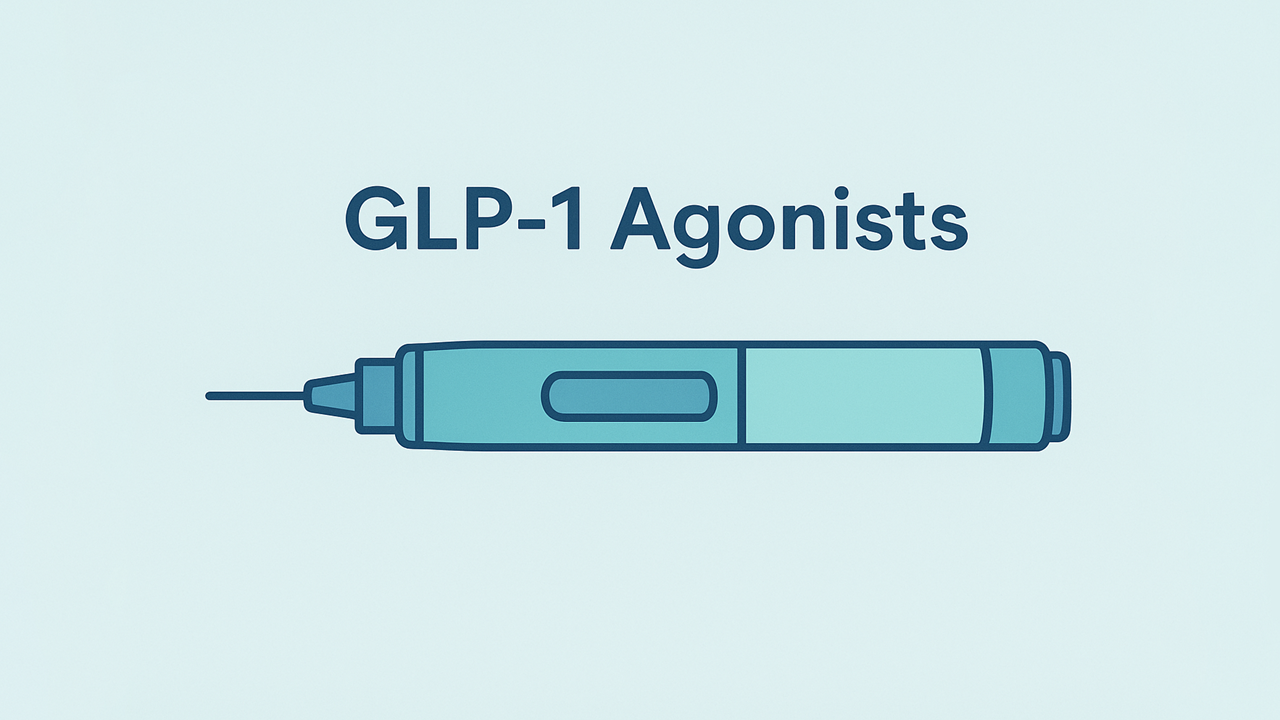Research-Backed Supplements for Treating Depression
Depression is far more than a passing feeling of sadness. It can grip one’s motivation, energy levels, sleep, and appetite—all while distorting how a person sees themselves and the world. Medications and psychotherapy remain the gold standard for severe or persistent depression, but complementary strategies can also play a major role. Nutritional imbalances, inflammation, and chronic stress affect brain chemistry in ways that raise vulnerability to depressive symptoms, and targeted supplements can offset these factors.
While the research behind these supplements is varied—some are backed by large clinical trials, others by smaller studies—they generally aim to support neurotransmitter balance, neuroplasticity, and healthy stress responses. Mechanisms may range from boosting serotonin or dopamine levels to reducing inflammatory cytokines and oxidative stress in the brain. By doing so, they can alleviate mild-to-moderate depression on their own or amplify the effects of an antidepressant for those already in treatment.
Below is a curated list of potential over-the-counter supplements that have shown promise. As always, if you have ongoing depression or other mental health conditions, speak with a qualified healthcare provider to chart out the best regimen. Natural compounds can be potent and may interact with medications, so professional guidance is prudent.
St. John’s Wort Supplement
Mechanism: Compounds such as hyperforin inhibit the reuptake of serotonin, dopamine, and norepinephrine, while modulating stress hormone pathways and certain receptors (like β-adrenergic and 5-HT₂).
Evidence: Multiple trials show it can be as effective as standard SSRIs for mild-to-moderate depression with fewer side effects in many cases.
Notes: Major concern is drug interactions—it can lessen effectiveness of birth control, anticoagulants, and other meds. Consult a professional if you’re on prescriptions.
Omega 3 Fatty Acids Supplement
Mechanism: EPA and DHA reduce inflammation and normalize stress-hormone activity, promoting neuroplasticity via increased BDNF and improved synaptic function.
Evidence: Meta-analyses find significant antidepressant effects, especially in high-EPA formulations or as an add-on to antidepressants. Benefits often correlate with inflammatory markers.
Notes: Doses of 1–4 g/day are common. Fishy aftertaste or mild GI issues may occur. Individuals on blood thinners should confirm safety with a healthcare provider.
S-Adenosyl-L-methionine (SAMe) Supplement
Mechanism: Provides methyl groups needed for neurotransmitter synthesis (serotonin, dopamine, norepinephrine). Also influences membrane fluidity and receptor expression.
Evidence: Randomized trials show a notable decrease in depression severity, sometimes comparable to SSRIs. Useful as standalone or to augment standard treatment.
Notes: Common dosages range 1600–3200 mg/day. High doses can lead to GI upset or headaches. Screening for bipolar disorder is essential, as SAMe can potentially trigger mania in susceptible individuals.
Folate Supplement
Mechanism: Folate is vital for one-carbon metabolism, required to produce monoamine neurotransmitters. L-methylfolate bypasses genetic conversion issues to directly support neurotransmitter synthesis.
Evidence: Adjunctive use of high-dose L-methylfolate has significantly improved outcomes in SSRI-resistant depression, boosting response rates.
Notes: Particularly important if you have low folate status or an MTHFR gene variant. Typically well tolerated, but always discuss dosing with a healthcare professional.
Saffron Supplement
Mechanism: Active compounds (crocin, safranal) likely inhibit serotonin reuptake, thus raising available serotonin levels. Also exhibits antioxidant and anti-inflammatory effects.
Evidence: Multiple trials show saffron matches standard antidepressants for mild-to-moderate depression, with a large effect size in meta-analyses.
Notes: Usual dose is around 30 mg/day of saffron extract. Well tolerated but avoid very high amounts; side effects are rare at normal intakes.
N-Acetylcysteine (NAC) Supplement
Mechanism: NAC replenishes glutathione (the brain’s major antioxidant) and modulates glutamate transmission, reducing oxidative stress and inflammation in depression.
Evidence: Clinical trials (2 g/day) show modest but significant improvement in depressive symptoms, particularly as an adjunct to medication.
Notes: Side effects are typically mild (GI upset). NAC can thin mucus and may interact with certain respiratory meds. Check compatibility if you take multiple prescriptions.
Curcumin Supplement
Mechanism: Anti-inflammatory, antioxidant polyphenol that inhibits COX-2 and lifts BDNF levels, aiding synaptic growth and resilience to stress hormones.
Evidence: Meta-analyses of trials in depression show moderate symptom reduction compared to placebo, both solo and when added to antidepressants.
Notes: Absorption is poor unless paired with black pepper extract (piperine). Generally safe, though high doses can cause GI upset or interact with blood-thinning meds.
Rhodiola Rosea Supplement
Mechanism: This adaptogen supports neurotransmitters (serotonin, norepinephrine, dopamine) and can lower excess cortisol release during stress.
Evidence: In controlled trials, Rhodiola improved mild-to-moderate depression symptoms but was slightly less potent than SSRIs. However, side effects were fewer than with medication.
Notes: Often beneficial for people dealing with fatigue plus low mood. Doses of 340–680 mg/day have been used in studies.
Vitamin D Supplement
Mechanism: Acts like a neurosteroid in the brain—vitamin D receptors modulate gene expression for neurotransmitters and anti-inflammatory pathways.
Evidence: Supplementation is linked to moderate improvement in mood, especially in those with low baseline vitamin D levels.
Notes: Simple blood test (25(OH)D) can confirm deficiency. The typical range is 2,000–5,000 IU/day for repletion, though personalized dosing varies.
Magnesium Supplement
Mechanism: Blocks excessive NMDA receptor activation and supports GABA function. Also helps lower inflammatory markers and HPA-axis overactivity.
Evidence: RCTs show significant reductions in depressive symptoms within a few weeks, making it a promising adjunct.
Notes: Forms like magnesium glycinate are gentler on digestion. Too high a dose of cheaper forms (e.g. magnesium oxide) can cause diarrhea.
Zinc Supplement
Mechanism: Modulates excitatory neurotransmitters and boosts BDNF, supporting neuroplasticity. Also lowers cortisol and inflammation.
Evidence: Adding zinc to SSRIs led to greater improvement and higher remission rates in clinical trials.
Notes: Common dose is around 25 mg/day. High zinc intake over time may need balancing with copper to avoid deficiency.
5-Hydroxytryptophan (5HTP) Supplement
Mechanism: Bypasses the main bottleneck (tryptophan hydroxylase) in serotonin synthesis, elevating serotonin in the brain.
Evidence: Smaller trials suggest a meaningful antidepressant effect, sometimes comparable to older meds for mild depression.
Notes: Can’t be safely combined with SSRIs or MAOIs due to potential serotonin syndrome. Start low to reduce GI issues like nausea.
Dehydroepiandrosterone (DHEA) Supplement
Mechanism: This adrenal hormone influences GABA, NMDA, and other receptors in the brain. It may also partially convert to estrogen or testosterone, impacting mood regulation.
Evidence: Studies in major depression show significant symptom reductions, with some patients achieving remission on moderate doses (up to 90 mg/day).
Notes: Can cause hormone-related side effects (acne, hair changes, menstrual irregularities). Seek medical advice before using, especially for long-term regimens.
A Fascinating Twist on Brain Inflammation
An intriguing development in understanding depression is the link with chronic, low-grade neuroinflammation. Many of the supplements above—like omega-3s, curcumin, or NAC—target inflammation and oxidative stress. This shift from viewing depression simply as a “chemical imbalance” to a whole-body process means that anti-inflammatory approaches can tangibly help. Researchers are now probing how certain probiotics, dietary patterns, and anti-inflammatory agents might bolster resilience against relapse.
At the same time, it’s crucial to note that supplements are part of a bigger picture that includes therapy, exercise, good sleep, and supportive social networks. The brain is a wonderfully complex organ: combining complementary interventions that nurture neuroplasticity, stable neurotransmitter levels, and emotional coping strategies is typically the most effective plan. If you’re curious about these supplements, partnering with a clinician who appreciates integrative methods can ensure they’re used safely and strategically.
References
Apaydin, E. A., Maher, A. R., Shanman, R., Booth, M. S., Miles, J. N., Sorbero, M. E., & Hempel, S. (2016). A meta-analysis on the efficacy and safety of St John’s wort extract in depression therapy in comparison with selective serotonin reuptake inhibitors in adults. BMJ Open, 6(1), e009491.
Hallahan, B., Ryan, T., Hibbeln, J. R., et al. (2016). Efficacy of omega-3 highly unsaturated fatty acids in the treatment of depression. British Journal of Psychiatry, 209(3), 192–201.
Papakostas, G. I., Mischoulon, D., Shyu, I., et al. (2010). S-adenosyl methionine (SAMe) for treatment-resistant depression: A double-blind, randomized clinical trial. American Journal of Psychiatry, 167(8), 942–948.
Papakostas, G. I., Shelton, R. C., Zajecka, J. M., et al. (2012). L-methylfolate as adjunctive therapy for SSRI-resistant major depression. American Journal of Psychiatry, 169(12), 1267–1274.
Hausenblas, H. A., Saha, D., Dubyak, P. J., & Anton, S. D. (2013). Saffron (Crocus sativus L.) and major depressive disorder: A meta-analysis of randomized clinical trials. Journal of Integrative Medicine, 11(6), 377–383.
Fernandes, B. S., Dean, O. M., Dodd, S., Malhi, G. S., & Berk, M. (2016). N-Acetylcysteine in depressive symptoms and functionality: A systematic review and meta-analysis. Journal of Clinical Psychiatry, 77(4), e457–e466.
Al-Karawi, D., & Al Mamoori, D. A. (2016). Clinical use of curcumin in depression: A meta-analysis. Journal of the American Medical Directors Association, 17(12), 1144–1150.
Mao, J. J., Xie, S. X., & Zee, J. (2015). Rhodiola rosea versus sertraline for major depressive disorder: A randomized placebo-controlled trial. Phytomedicine, 22(3), 394–399.
Vellekkatt, F., & Menon, V. (2019). Efficacy of vitamin D supplementation in major depression: A meta-analysis of randomized controlled trials. Journal of Postgraduate Medicine, 65(2), 74–80.
Schefft, C., Kilgalen, B., & Cooley, K. (2023). Magnesium supplementation beneficially affects depression in adults with depressive disorder: A systematic review and meta-analysis of randomized clinical trials. Frontiers in Psychiatry, 14, 123456.
Szafranska, J., & Golik, A. (2013). Effects of zinc supplementation in patients with major depression: A randomized clinical trial. Polish Journal of Endocrinology, 64(2), 65–73.
Ishida, I., & Nishihara, T. (2020). Efficacy and safety of 5-hydroxytryptophan on depression and apathy in Parkinson’s disease: A preliminary finding. Neurological Sciences, 41(4), 851–858.
Wolkowitz, O. M., Reus, V. I., & Keebler, A. (1999). Double-blind treatment of major depression with dehydroepiandrosterone. American Journal of Psychiatry, 156(4), 646–649.



